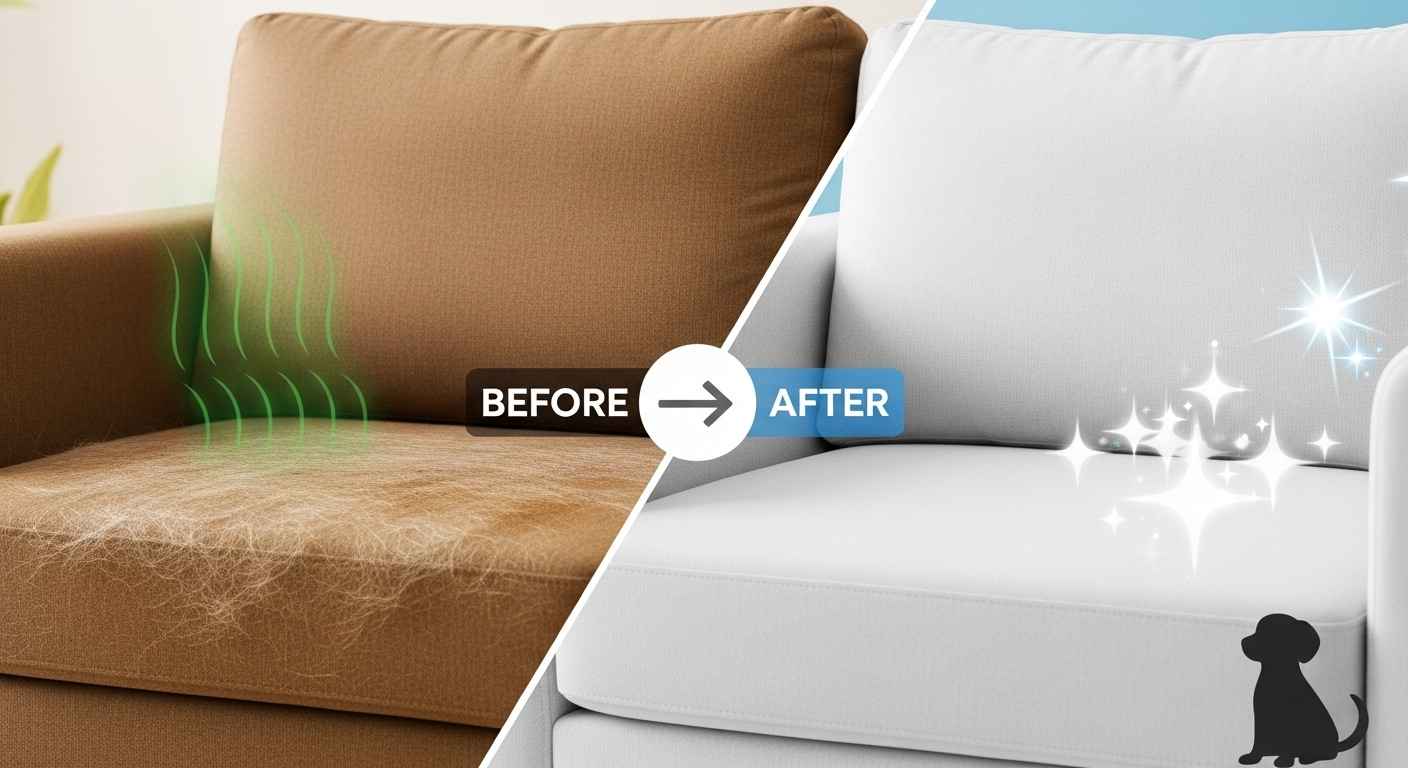Living with pets brings joy, but it can also bring unwanted smells into your furniture. Pet odors in couches, chairs, and upholstery don’t have to be permanent. This guide shows you proven methods to eliminate these smells completely and keep your furniture fresh.
Why Pet Odors Stick to Furniture
Pet odors penetrate deep into fabric fibers and cushion foam. The ammonia in urine creates particularly stubborn smells that regular cleaning can’t reach. Pet dander, oils from fur, and moisture from accidents all contribute to persistent odors.
Most commercial air fresheners only mask smells temporarily. You need specific techniques that break down odor-causing bacteria and neutralize ammonia compounds at their source.
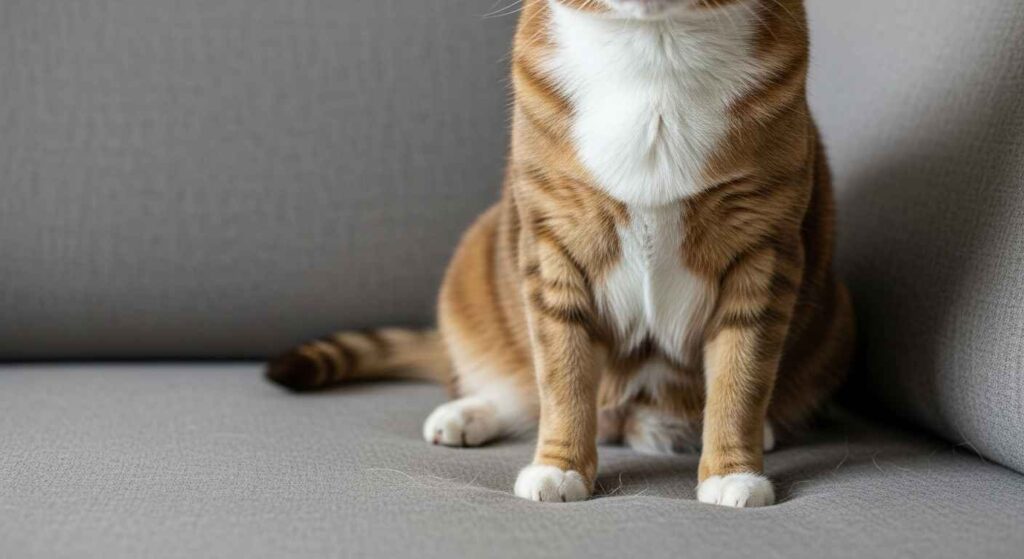
Essential Supplies for Pet Odor Removal
Before starting, gather these materials:
- White vinegar
- Baking soda
- Enzyme cleaner (pet-specific)
- Clean towels
- Spray bottles
- Vacuum with upholstery attachment
- Steam cleaner (optional)
Pro tip: Always test any cleaning solution on a hidden area first to prevent damage or discoloration.
Method 1: Baking Soda Deep Clean
Baking soda is a natural odor-absorber that works effectively on most furniture types.
Steps:
- Remove all cushions and pillows
- Vacuum thoroughly, including under cushions and in crevices
- Sprinkle baking soda liberally over the surface
- Work baking soda into fabric with a clean brush
- Let it sit overnight
- Vacuum it up the next day
This method works best for general pet odors and is safe for most fabric types.
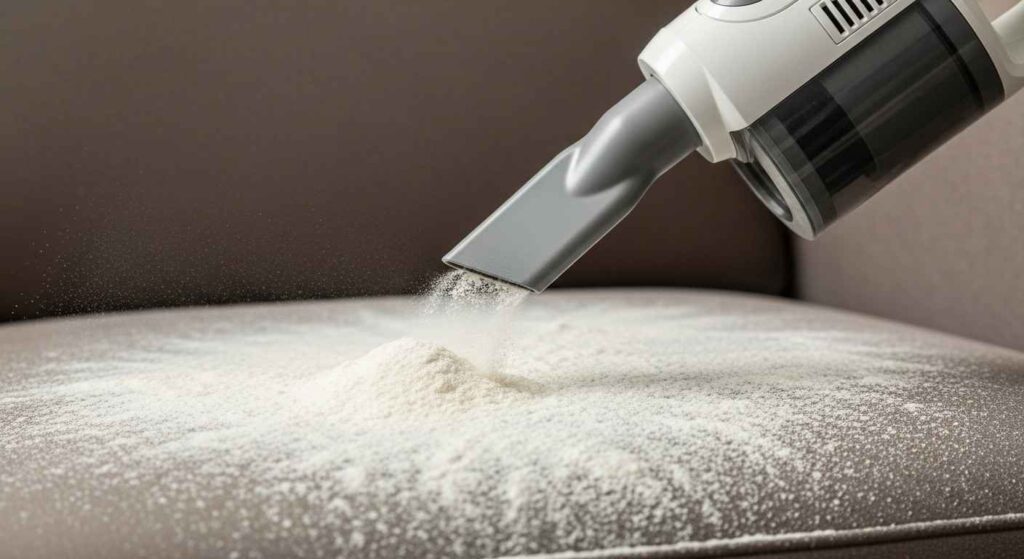
Method 2: White Vinegar Solution
Vinegar helps neutralize the ammonia in urine and kills odor-causing bacteria.
Steps:
- Mix one part white vinegar with one part water in a spray bottle
- Spray the affected area until it’s damp but not soaked
- Allow the solution to sit for a few minutes
- Using a soft cloth, gently blot the area to remove the vinegar solution
- Air dry completely
The vinegar smell will disappear as it dries, taking pet odors with it.
Method 3: Enzyme Cleaners for Tough Stains
Enzyme cleaners break down organic matter that causes pet odors. Professional strength bio-enzymatic formulas eliminate stains and odors from urine, feces, vomit, and other organic stains.
How to use:
- Blot up any fresh accidents immediately
- Apply enzyme cleaner according to package directions
- Allow full contact time (usually 10-15 minutes)
- Blot with clean towels
- Let air dry naturally
Important: Never use heat or steam after applying enzyme cleaners, as this can set stains permanently.
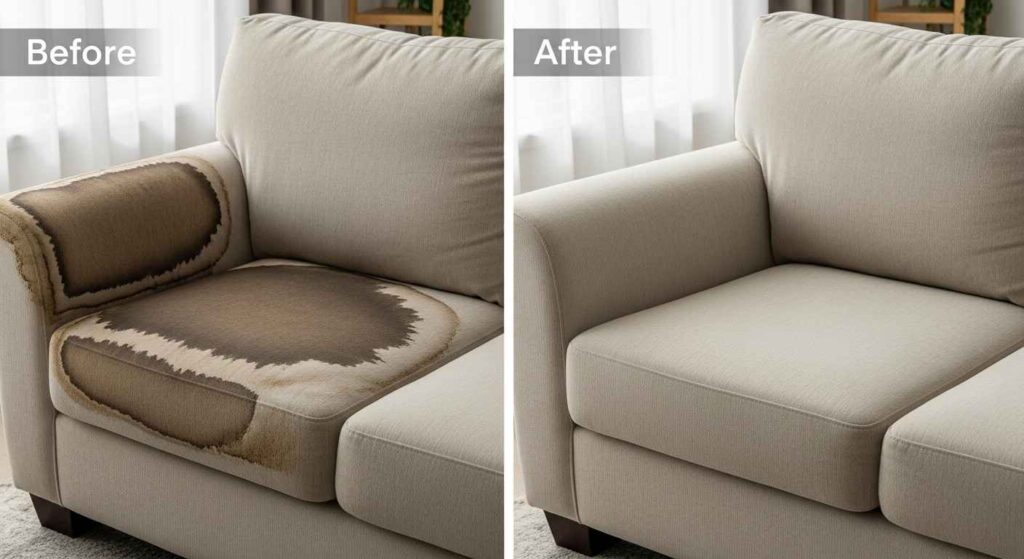
Steam Cleaning for Deep Sanitization
Steam cleaners use hot steam to kill bacteria, which is often responsible for pet odors. Steam up to 275 degrees F kills 99.9 percent of bacteria, viruses, pathogens and mold.
Steam cleaning process:
- Vacuum furniture first
- Fill steam cleaner with distilled water
- Work in small sections
- Allow furniture to dry completely (may take 24 hours)
- Ensure good ventilation during drying
Steam cleaning works well for monthly deep cleaning but shouldn’t be your first choice for fresh accidents.
Natural Sunlight Treatment
Fresh air and sunshine are surprisingly effective at removing odors. The sun’s ultraviolet rays help kill odor-causing bacteria naturally.
Steps:
- Remove cushions on a sunny day
- Place them outdoors in a sunny spot for several hours
- Flip cushions halfway through
- Bring inside before evening dew
This free method works best combined with other cleaning techniques.
Different Furniture Types Require Different Approaches
Fabric Upholstery
- Safe for all methods above
- Test cleaning solutions first
- Allow extra drying time
Leather Furniture
Enzyme removers can work to kill bacteria and odor, but they may also remove the dye on your leather or dry it out. Test everything on a small, hidden part of the furniture before trying anything major.
For leather:
- Use specialized leather cleaners
- Follow with leather conditioner
- Avoid soaking the material
Microfiber
- Responds well to baking soda treatment
- Use minimal moisture
- Brush fabric after cleaning to restore texture

Prevention Tips to Stop Future Odors
Regular Maintenance
- Vacuum weekly with upholstery attachment to remove pet hair and dander
- Wash pillows and blankets regularly as smells might not actually be from the couch itself
- Rotate and flip cushions monthly
Pet Training
- Address accidents immediately
- Use pet-safe deterrent sprays
- Provide alternative comfortable spots for pets
Air Quality
- Use air purifiers with HEPA filters
- Maintain good ventilation
- Consider dehumidifiers in humid climates
When to Call Professionals
Having your sofa professionally cleaned will definitely remove dog smells. Consider professional cleaning when:
- Home methods haven’t worked after multiple attempts
- Furniture is expensive or antique
- Odors cover large areas
- You lack time or equipment
Many carpet cleaning services offer upholstery cleaning and may use special commercial-grade deodorizing products.
Common Mistakes That Make Odors Worse
Using Wrong Products
- Avoid ammonia-based cleaners (pets may re-mark areas)
- Don’t use bleach on colored fabrics
- Skip fabric softeners that can trap odors
Inadequate Cleaning
- Not addressing the source of odors
- Using too little cleaning product
- Not allowing enough contact time
Heat Damage
- Using hot water with enzyme cleaners
- Over-steaming delicate fabrics
- Not testing temperature first
Quick Action Plan for Fresh Accidents
When accidents happen:
- Act fast – Fresh stains are easier to clean
- Blot, don’t rub – Rubbing pushes odors deeper
- Use cool water first – Hot water can set proteins in urine
- Apply enzyme cleaner immediately
- Ventilate the area during drying
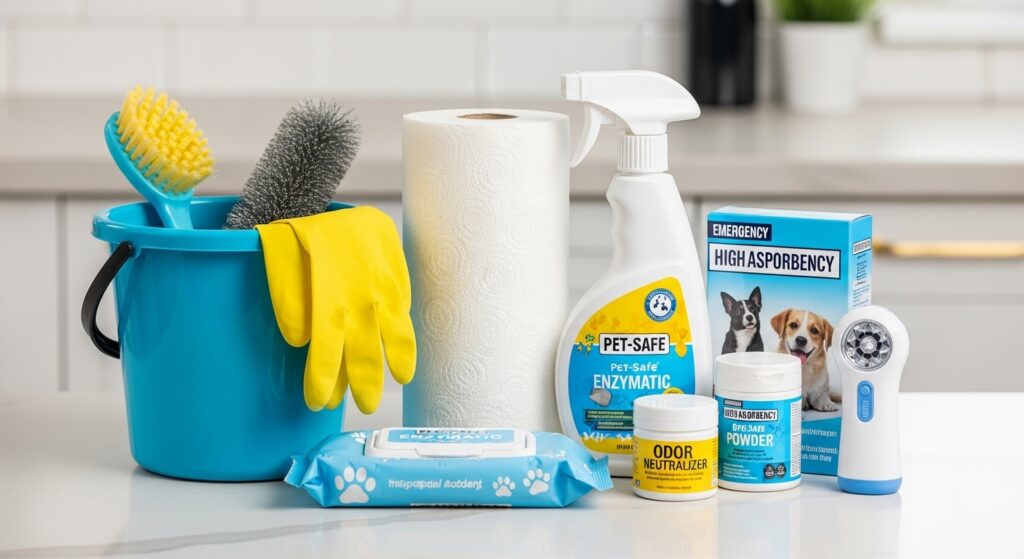
Final Thoughts
Removing pet odors from furniture takes patience and the right approach. Start with gentler methods like baking soda before moving to stronger solutions. Remember that some odors may need repeated treatments to disappear completely.
The key is addressing odors at their source rather than just masking them. With consistent care and the right techniques, your furniture can stay fresh and comfortable for both you and your pets.
Regular maintenance prevents most odor problems from developing. Clean accidents immediately, vacuum frequently, and give your furniture the occasional deep clean to maintain a fresh-smelling home.
Related reading: Learn more about maintaining a clean home with our guide to removing stubborn stains, and discover eco-friendly cleaning options that are safe for pets and family.
